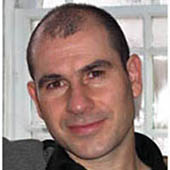- HOME
- STORIES
- Graduate Programs
- word cafe
- Fiction Faculty Naeem Murr Recommends The Refugees by Viet Thanh Nguyen (Grove, 2017)
Fiction Faculty Naeem Murr Recommends The Refugees by Viet Thanh Nguyen (Grove, 2017)

By Naeem Murr
Fiction Faculty
This story collection came out a couple of years after Nguyen’s Pulitzer-prize-winning novel, The Sympathizer. The protagonists are Vietnamese Americans or nationals, and the stories focus on the profound effect on first- and second-generation refugees of their equivocal identities. In I’d Love You to Want Me, a Vietnamese American man suffering from Alzheimer’s calls his wife by the name of a woman from his past in Vietnam. In another, a Vietnamese man living in Saigon gives the children of his new family the same names as the children from his first marriage, all of whom are now in America. The characters are often torn between their Vietnamese identity and the open identity that America seems to offer. The first story, Black-Eyed Woman, is probably the best known. In it, a Vietnamese-American ghostwriter is visited by the ghost of her brother, murdered while trying to protect her during their escape to America. This story functions as a sort of hybrid story/preface, introducing the readers to all the metaphorical ghosts that will fill the rest of the stories.
The best story in this strong collection is The Other Man. A gay Vietnamese refugee, Liem, taken into the home of two gay men in San Francisco, finds himself caught between his deep sense of guilt about his family, left behind in Vietnam, and a desire to be free of this weight of memory and responsibility. Such freedom is embodied by an empty, shallow, essentially conscienceless gay man called Marcus. The story ends with Liem trapped between the decent man he is and the at once attractive and repellent shadow-self he might become. While all the stories are well written and worth reading—Nguyen is a natural-born fiction writer—none are as fully achieved as The Other Man.
The power of such stories derives from the fact that we are all refugees, if only from the strange nations of our families and childhoods. And that we are all liminal, caught, as are Nguyen’s characters so vividly, between the person we have become and the self who might have been, for better or worse, someone else.
